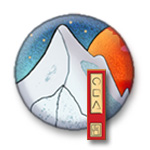On The Way: The Daily Zen Journal
Ten Guidelines for the Ch’an School
Fa-yen (885-958)
The purpose of Zen is to enable people to immediately transcend the ordinary and the holy, just getting people to awaken on their own, forever cutting off the root of doubt.
Many people in modern times disregard this. They may join Ch’an groups, but they are lazy about Ch’an study. Even if they achieve concentration, they do not choose real teachers. Through the errors of false teachers, they likewise lose the way.
Without having understood senses and objects, as soon as they possess themselves of some false interpretation they become obsessed by it and lose the correct basis completely.
They are only interested in becoming leaders and being known as teachers. While they value an empty reputation in the world, they bring ill on themselves. Not only do they make their successors blind and deaf, they also cause the influence of Ch’an to degenerate.
Ch’an is not founded or sustained on the premise that there is a doctrine to be transmitted. It is just a matter of direct guidance to the human mind, perception of its essence, and achievement of awakening. How could there be any sectarian styles to be valued?
There were differences in the modes of teaching set up by later Ch’an teachers, and there were both tradition and change. The methods employed by a number of famous Ch’an masters came to be continued as traditions, to the point where their descendents became sectarians and did not get to the original reality. Eventually they made many digressions, contradicting and attacking each other. They do not distinguish the profound from the superficial, and do not know that the Great Way has no sides, and the streams of truth have the same flavor.
If you memorize slogans, you are unable to make subtle adaptations according to the situation. It is not that there is no way to teach insight to learners, but once you have learned a way, it is essential that you get it to work completely. If you just stick to your teacher’s school and memorize slogans, this is not enlightenment, it is part of intellectual knowledge.
This is why it is said, “When your perception only equals that of your teacher, you lessen the teacher’s virtue by half. When your perception goes beyond the teacher’s, only then can you express the teacher’s teaching.”

The Sixth Ancestor of Ch’an said to someone who had just awakened, “What I tell you is not a secret. This secret is in you.”
Another Ch’an master said to a companion, “Everything flows from your own heart.”
See how those worthies of former times traversed mountains and seas, not shrinking from death or life, for the sake of one or two principles. When there was the slightest tinge of doubt, the matter had to be submitted to certain discernment; what they wanted was distinct clarity.
First becoming standards of truth and falsehood, acting as eyes for intelligent beings, only after that did they raise the seal of the source on high and circulate true teaching, bringing forth rights and wrongs of former generations, bearing down on inconclusive ones.
If, without undergoing purification and clarification, you make your own personal judgment of past and present, how is that different from insisting on performing a sword dance without having learned how to handle a sword, or foolishly counting on getting across a pit without having found out its size? Can you avoid cutting yourself or falling?
The Complete Perfection of True Nature
Reason exhausted, concerns forgotten—
How could this be adequately expressed?
Wherever I go, the icy moonlight’s there,
Falling just as it does on the valley ahead.
The fruit is ripe, trees heavy with monkeys,
Mountains so endless I seem to have lost the way.
When I lift my head, some light still remains—
I see that I’m west of the place I call home.
Fa-yen (885-958)
Excerpted from The Roaring Stream – A New Zen Reader Edited by Nelson Foster and Jack Shoemaker




This is a call to engagement with the teachings, beyond acceptance and belief…
“When there was the slightest tinge of doubt, the matter had to be submitted to certain discernment; what they wanted was distinct clarity.”
The “worthies of former times” sacrificed to attain their true insights; it involved more than just hearing and parroting a teacher’s words. They turned their own inner light onto the great matter at hand. They stayed with their practice long enough, they persisted in questioning their doubts; they didn’t give up.
“When your perception only equals that of your teacher, you lessen the teacher’s virtue by half. When your perception goes beyond the teacher’s, only then can you express the teacher’s teaching.”
How to go beyond? Just avoid being too satisfied with what we understand right now, what we think we see, and most importantly what we’ve been told by others. Continue the practice of waking up, even if it requires a pinch, a spur to our sides, a fall at times. “Just, pick yourself up, dust yourself off and start all over again!”
Yours along the Way
Elana